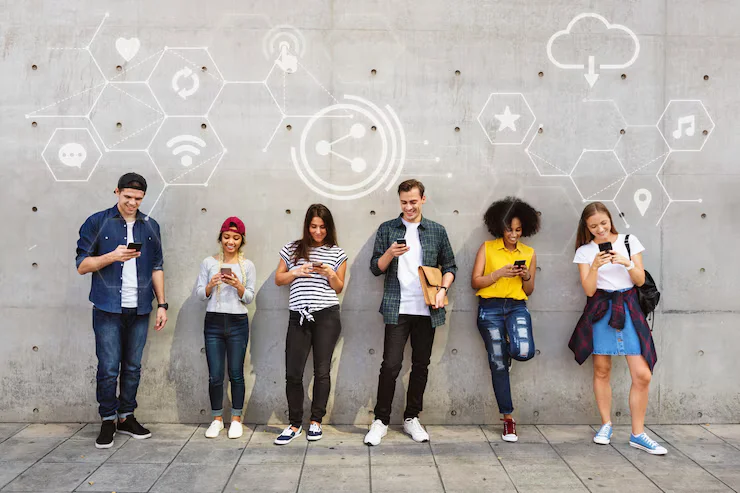-
129, Block-A Bangur Avenue, Mousumi Appartment, Kolkata 700055
129, Block-A Bangur Avenue, Mousumi Appartment, Kolkata 700055

Social Intelligence is evolving alongside living intelligence tech. Learn how to develop deeper connections, empathy, and awareness with insights from expert counseling.
In a world where machines are no longer just reactive but interactive—where your devices know when you’re anxious or when your heart skips a beat—Living Intelligence is more than a futuristic term. It’s here, and it’s subtly changing how we think, feel, and connect.
But amid this technological evolution, one very human trait is becoming more vital than ever: Social Intelligence.
This article explores how the merging of human cognition with sensor-driven AI and biofeedback systems is reshaping communication—and why nurturing social intelligence is a must in this landscape.

At its core, Social Intelligence is the ability to understand, manage, and respond to interpersonal relationships with empathy and self-awareness. It’s not about being outgoing—it’s about tuning in.
In the age of hyper-connectivity and emotional algorithms, these abilities help us bridge gaps between humans and even between humans and intelligent systems.
Living Intelligence refers to systems that mimic or respond to human biological processes. Think:
These technologies are designed to learn, adapt, and emotionally resonate with users—not just execute commands.
And while they’re powerful, they highlight something even more vital: the need for human-led emotional interpretation, where social intelligence becomes the key differentiator.
Living Intelligence may help us become more self-aware—but only to a point. Devices can track mood swings or facial expressions, but they can’t replace human emotional nuance.
Technologists are beginning to collaborate with behavioral experts to design “emotionally aware” machines. But even the most advanced AI systems lack the lived experience and nuanced empathy that human minds possess.
This is why many individuals, especially in tech-forward cities, are seeking expert psychological guidance—not just for mental health, but to enhance cognitive empathy, relationship patterns, and emotional adaptability in a fast-paced digital world.
Forward-thinking professionals often work with the best psychological counselors to integrate personal growth with tech awareness, enhancing their EQ (Emotional Quotient) alongside their IQ.

Rather than fearing that machines will replace empathy, we can learn to coexist with and grow from intelligent systems. Here’s how to stay ahead:
Be fully present—even during online conversations. Don’t just hear; absorb. Reflect on what’s being said and what’s left unsaid.
Mindfulness apps and biofeedback tools are great—but pair them with journaling or therapy to understand emotional triggers.
In global Zoom rooms, social intelligence includes understanding different communication norms and respecting boundaries.
Whether at work or in digital communities, being aware of emotional dynamics and contributing with kindness makes you a stronger collaborator.
Educate yourself about emotional literacy. Recognizing subtle behavioral cues can improve both personal and professional relationships.
With technology weaving itself into our emotions, the need to stay grounded in human connection has never been greater. Counseling is no longer only about addressing trauma—it’s about future-proofing your social life and emotional resilience.
An expert counselor can help:
At Mind’s Eye, for example, professionals use insight-driven, evidence-based frameworks that merge emotional theory with practical tools—helping clients navigate the emotional complexities of our digitized society.

Yes, but with limitations. While AI tools can track emotional signals, true social intelligence comes from human learning and self-awareness.
Emotional intelligence focuses on personal emotions. Social intelligence emphasizes understanding and managing social interactions and group dynamics.
Absolutely. Through coaching, counseling, and life experience, individuals can improve empathy, communication, and adaptability.
Signs may include difficulty reading body language, trouble maintaining relationships, or misreading social cues. A psychological counselor can help assess and improve these areas.
Better relationships, improved leadership skills, conflict resolution abilities, and stronger personal and professional networks.
As AI systems become more adept at mimicking empathy, we must not forget that machines learn from us—not the other way around. The future belongs to those who pair technological fluency with deep human awareness.
Whether you’re a leader, educator, student, or simply navigating today’s hyper-connected world, strengthening your social intelligence is not optional—it’s essential.
And if you’re seeking deeper emotional insight, working with the best psychological counselor can be a powerful step toward building lasting social intelligence and emotional well-being.